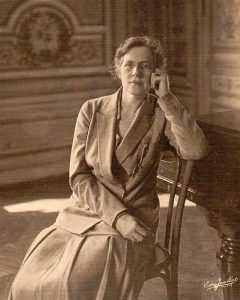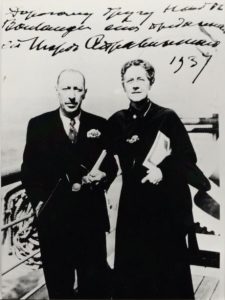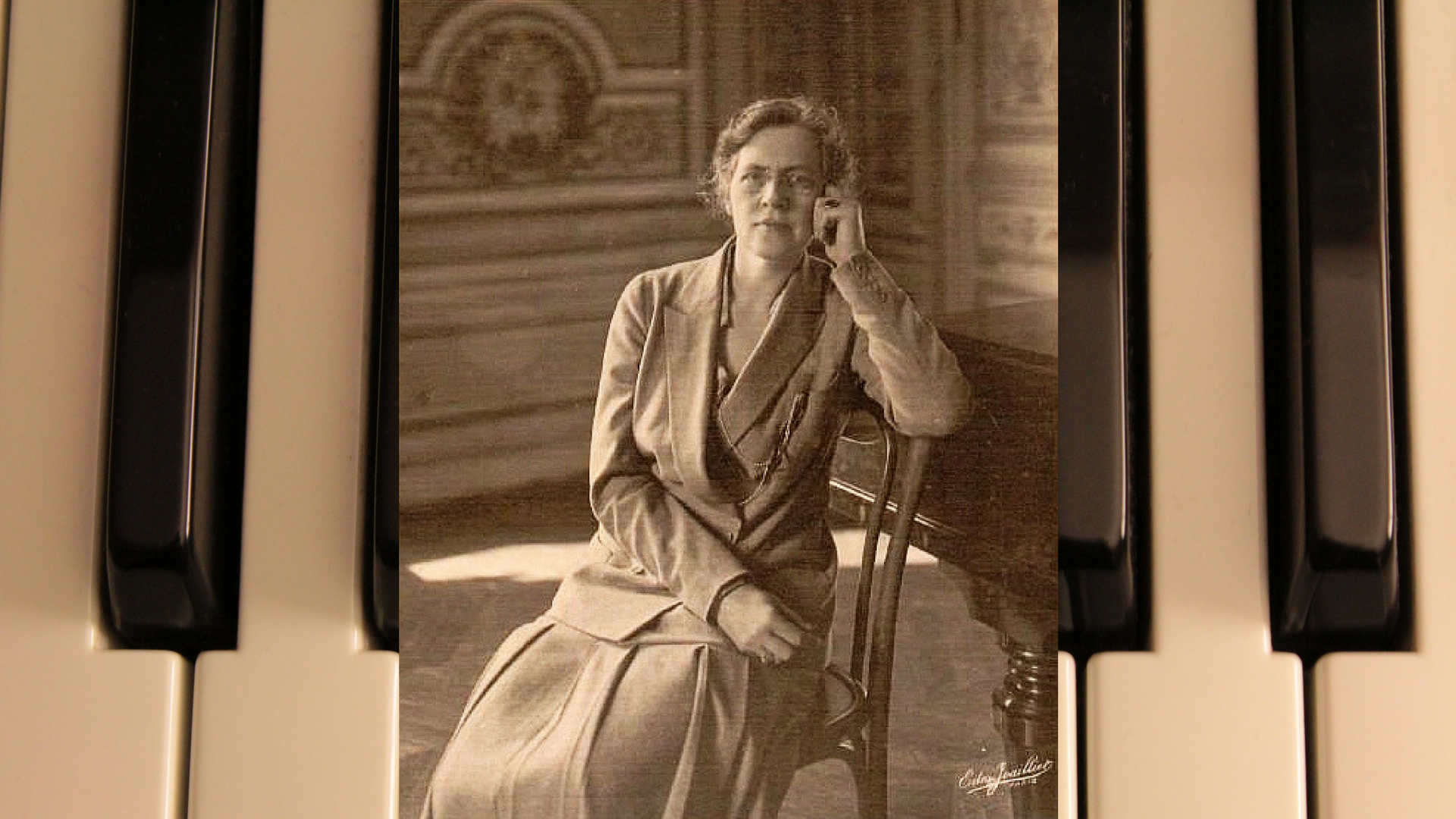It’s National Mentoring Month! What better time to take a look at one of the most influential music mentors in recent history? Nadia Boulanger was an incredible educator and taught the likes of Stravinsky, Copland, and Quincy Jones out of her apartment in Paris. Read about her life and lasting impact on some of the most recognized composers of the 20th century.
Nadia Boulanger: Mentor of Modern Composition
If you were to ask many of the great composers of the 20th century to picture their ideal mentor, they wouldn’t envision a strapping gentleman dressed up in a suit and tie comfortably lounging in his office at a university. Instead, they would picture a French woman with a slight build and hair tied up in a bun wearing a stern expression as she worked at the piano of her family’s apartment in Paris – they would picture Nadia Boulanger.

Nadia Boulanger, 1925.
Nadia Boulanger was born into a musical family in Paris, France on September 16, 1887. Her father, Ernest Boulanger, was a composer and pianist who taught at the Paris Conservatory and won the coveted Prix de Rome competition for composition. Strangely, as a young child Nadia would have horrible reactions to music in the home. She would run away and cry upon hearing the piano and singing. Eventually, when she was 5, she stopped having this reaction and would instead run to the piano to try to recreate the music her parents made. Nadia Boulanger went on to attend the Paris Conservatory beginning at age 9, and upon graduation immediately began teaching music from her home.

Igor Stravinsky and Nadia Boulanger, 1937
Boulanger was an incredibly influential teacher who had a remarkable impact on the development of modern musical composition. In particular, several of the best known American composers of the 20th century studied with her, including Igor Stravinsky, Aaron Copland, Elliott Carter, Phillip Glass, and Quincy Jones. She was said to have a teaching style that combined uncompromisingly honest critique and a dedication to unlocking the curiosity of each student. She had incredible work ethic, which can best be summarized in her own words: “Anyone who acts without paying attention to what he is doing is wasting his life. I’d go so far as to say that life is denied by lack of attention, whether it be to cleaning windows or trying to write a masterpiece.”
One of the most shocking aspects of Boulanger’s impact is how little recognition she has received for her contribution. She received a few awards posthumously including the Order of the British Empire and the Order of the Crown of Belgium, two national awards that are considered to be high honors. Other than that, her recognition comes from having a line in many accomplished composers biographies – “… travelled to Paris to study with the widely respected Nadia Boulanger” is a line that appears either verbatim or in some variation in Copland’s, Piazzolla’s, and Glass’ bios. Yet, the evidence of Boulanger’s influence is clear in the minds of her students. In a BBC interview Quincy Jones, producer of Michael Jackson’s all-time best-selling album, Thriller, stated “Nadia Boulanger was the most astounding woman I ever met in my life.” Jones says he owes much to Boulanger for her instruction in Paris, and fondly remembers Boulanger telling him “Your music can never be more, or less, than you are as a human being.”
Although much of her work was done without fanfare, it is likely no mere coincidence that some of the most well-known composers of the 20th century dropped everything to move to Paris and study with Boulanger before starting their careers in earnest. Each widely-recognized composer has a unique style that differs from the others, yet what remains consistent between all of these legends is that they studied with Nadia Boulanger. Although she didn’t know it, she probably helped give the world works ranging from Thriller to Fanfare to the Common Man thanks to her impact on some of the 20th century’s most acclaimed composers.







Leave a Reply